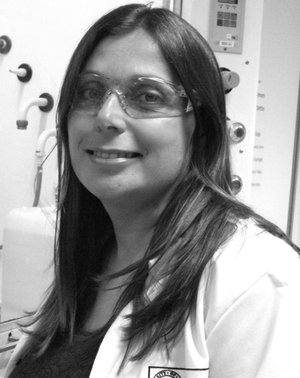Professor Angela Russell receives 2021 Harrington UK Rare Disease Scholar Award
 The Harrington Discovery Institute at University Hospitals
in Cleveland, Ohio, and its registered charity Fund for Cures UK, Ltd.,
together with Morgan Stanley GIFT (Global Impact Funding Trust) Cures, have
announced five winners in the inaugural Harrington UK Rare Disease Scholar Award competition, which aims to advance the development of new treatments for
rare diseases.
The Harrington Discovery Institute at University Hospitals
in Cleveland, Ohio, and its registered charity Fund for Cures UK, Ltd.,
together with Morgan Stanley GIFT (Global Impact Funding Trust) Cures, have
announced five winners in the inaugural Harrington UK Rare Disease Scholar Award competition, which aims to advance the development of new treatments for
rare diseases.
The Harrington Discovery Institute was established in 2012 to ‘accelerate promising discoveries into new medicines to address unmet patient needs’. In January 2020 its UK charity, Fund for Cures UK, issued a national call for proposals for cutting-edge research into rare diseases, ultra-rare diseases, and rare variants of more common diseases. The award provides grant funding to the winners, as well as dedicated drug discovery and development support from Harrington Discovery Institute’s Therapeutics Development team, while the rights to intellectual property are retained by the award recipient.
Almost 50 applications were received, from scientists and physicians based at 17 institutions across England, Scotland and Wales. Following a number of rounds of confidential review, in which academic and industry science reviewers evaluated the projects according to a range of criteria including the likelihood to improve standard of care, to be transformative, and/or to result in a licensable package, five winners were chosen.
Commenting on the award, Professor Russell said:
'I’m delighted to have been awarded a 2021 Harrington UK Rare Diseases Scholarship. The support and guidance the Harrington team provide will be instrumental in allowing us to build on our collaborative work with Professor Dame Kay Davies’ group (DPAG), to develop a small molecule drug to increase utrophin levels at the muscle membrane to treat Duchenne muscular dystrophy patients.'
Professor Russell’s research interests are in the field of medicinal chemistry, and encompass the development of small molecules to control signalling processes. She has realised several successful multidisciplinary research collaborations, including identifying small molecules to upregulate utriphin for the treatment of Duchenne Muscular Dystrophy, developing novel inhibitors and activators of developmental signalling pathways and new anti-cancer agents and cancer biomarker detection methods.